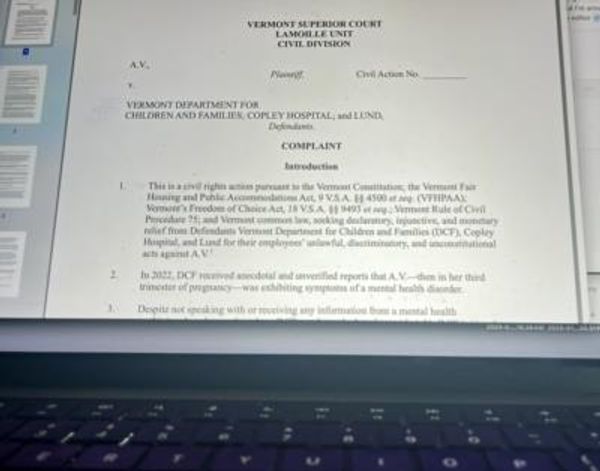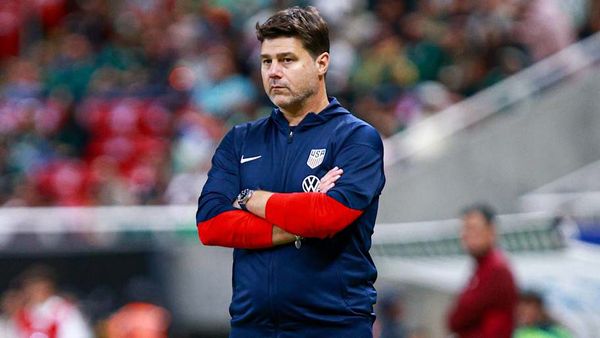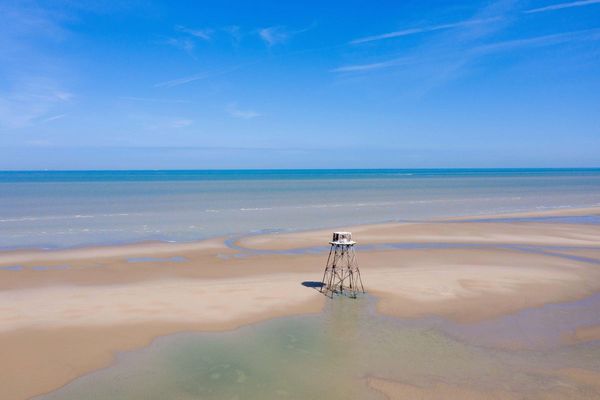
Listen to this story:
Sri Lanka – In 1996, 14-year-old Dewi Chandrika Bruins travelled with her family to Sri Lanka, where in an airy school room in the town of Avissawella she met a thin, shy woman.
This woman, a social worker told the teenager, is the woman who gave birth to you.
For Bruins, who had been adopted by a Dutch couple when she was three months old, this meeting should have been the crescendo of her search for her roots. It was, however, the start of an unravelling.
The encounter felt “strange”, and the woman, Bruins recalls, appeared distant, scared even. At the end of the meeting, the social worker offered no contact information for her birth mother, and no way to stay in touch. All she was given was the lady’s photo.
“They told me she moved, and she didn’t want to leave her address with me,” says Bruins, now 39 and a psychologist in the Netherlands. “So it was, again, a very big rejection.”
As a teenager, she tried to deal with the curdling pain, the sense of loss. Then in 2011, as a 29-year-old, she was spurred to gather up the skeins of her search again. This time, she knew exactly who to contact: Andrew Silva.
From her sister, Bruins had heard about Silva, a Sri Lankan tourist taxi driver with a formidable reputation as a searcher in the Dutch adoption community.
“I heard he was experienced,” says Bruins, “that he was both realistic and reliable.” So she sent him an email.
‘This is not a business’
It is a humid January evening, and Andrew Silva is locking up his boxy Nissan van to settle down for dinner. He whips out two squat brown-paper notebooks; scrawled on each in maroon letters are the words “Mothers” and “Childrens”. As the headings suggest, the books contain information on Sri Lankan mothers who placed children for adoption and want to find them (200-plus entries), or children who were adopted and are looking for their birth families (1,000-plus entries).

Clad in cargo shorts and a pink T-shirt, his analogue phone and smartphone in front of him, Silva constantly fields calls. Someone wants to know if the DNA test results are back yet; someone else asks when he was going to meet them. His phones gurgle with notifications; messages from Italy and Switzerland, desperate adoptees seeking updates.
Since 2002, Silva, a 56-year-old father of two and cab driver in the coastal city of Negombo, has been connecting international adoptees to their birth mothers in the island nation.
Over two decades, he estimates he has helped reunite about 175 individuals who were adopted and their families. This is pro bono – he continues to work his day job, ferrying tourists across the country from the ruins of Sigiriya to the tea estates of Kandy and the beaches of the south. “This is not a business. This is one of the best things to help human beings,” says Silva. He only asks to be reimbursed his fuel costs if he is able to find their families.
Silva has no background in genealogy, bureaucracy or detective work. He is simply a man with a van, a network and an investigative zeal. “I can’t promise. If you say, ‘Andrew, help me find my biological mother’, I can’t say, ‘OK, I will [be able to] do it,’” he says. “But I say, ‘I will try.’”
It is not easy. From the 1970s onwards, at least 11,000 children in Sri Lanka were adopted by white Western couples often in dubious circumstances, with poor women exploited, and babies even sold. The Netherlands, Sweden and France were the top three receiving countries from Sri Lanka, according to Peter Selman, a visiting fellow at Newcastle University in the United Kingdom and chair of the Network for Intercountry Adoption. According to his data, Sri Lanka went from being tenth in the 1970s to fifth in the 1980s as an origin country for international adoption.
As the scale of the wrongdoing was exposed, particularly in the wake of a 2017 Dutch documentary programme, the Sri Lankan government announced an investigation. Shorn of answers and sundered from their roots, grown-up adoptees have been increasingly returning to Sri Lanka in the past two decades.
“As adopted people, we want to know our stories,” says Helene Iresha Deschamps, 29, a French lawyer in Lyon. “There are so many questions.”
But poor record-keeping and the desire to cover up misdeeds have often stymied their searches, especially in a country where they do not know the language or even where to start.

For instance, Celine Breysse found conflicting information in the paperwork handed to her French parents in 1983. In 2009, when she went to Sri Lanka, the hospital that is listed on her birth certificate claimed to have burned its files. Silva tracked down the village of Breysse’s birth mother after finding the woman’s name in hospital records that were not mentioned in the adoption papers. It later turned out that the woman who had handed Breysse over in court was an “acting mother” – she had completed the formalities, but not actually given birth to her.
“Andrew was able to gain access to institutions that had lied to me for years,” says Breysse, 39, whose recent memoir, Good Morning Nilanthi, refers to some of these experiences. “Alone I would not have succeeded.”
The first case
Silva was raised in Negombo, a touristy beach town about 40km (25 miles) from the country’s capital, Colombo. Born Catholic, but not especially religious, he grew up a football fanatic in a cricket-mad nation.
In “little Rome”, as the town is called for its richness of churches, Silva had few plans other than playing as goalie for his beloved Jupiter football team and driving his taxi.
But life took a turn around 2002 when a Dutch tourist he knew through football introduced him to a Dutch family who wanted to do a tour. The family was also hoping to find their daughter’s birth mother but had run up against some hurdles. An intermediary claimed they could help, but only if they paid them.
Aggrieved, the family turned to Silva, their driver for the trip: would he be able to tackle an additional request?
Silva went through the paperwork at hand, puzzled at first by the enigmatic language. Through a process of trial and error, and following curious clues about “the houses near the river”, Silva hit upon the right person.
“I was happy after that,” he says. He did not expect that one success would launch a cottage industry. But the word of his breakthrough spread abroad and set off a ripple effect of requests.

‘This is my mother’s name’
By the time Silva received the email from Bruins in 2011, he was depressingly familiar with the unscrupulous practices rife through the 1980s: agents who coerced mothers into giving up children; nurses, lawyers and church officials who brokered shady agreements; government authorities who looked the other way.
With Bruins’s photo of the pink-sari-clad woman she was introduced to as her birth mother, Silva pounded the pavements and knocked on doors, asking around Avissawella where Bruins recalled having the meeting. But nothing worked and the search stagnated.
Then in 2017, Bruins reached out to him again, spurred on after watching a television documentary on adoption frauds. Tapping into his network of media contacts Silva was able to place a story in a local Sinhala newspaper on Bruins and her futile quest. The story mentioned the birth mother’s name, along with a photo from 1996.
For days, nothing happened. As Silva tells it, some weeks later, he received a call. The caller said she knew the name of the woman mentioned.
“She said, this is my mother’s name but this is not her photo,” Silva recounts. “But we know my mother [placed] a child for adoption.” The caller said they didn’t subscribe to this paper regularly, but they chanced upon the frayed pages while using old newspapers to protect their furniture during home renovations. She had accidentally read the story.
Even though the name and the photo did not match, it felt like the case had been cracked open.

Cautiously optimistic, Silva went to meet the family in a village near Negombo. He was instantly struck by the older woman’s resemblance to Bruins. Retrieving a DNA kit from his van, Silva pulled out a stick and swished the inside of the woman’s mouth for a sample.
‘One day you can find your mother’
Tourism has been erratic since the COVID pandemic struck, decimating a major plank of Sri Lanka’s economy. But before that, Silva did roughly two tours a month. Traversing the expanses of his homeland also gives him a chance to meet families in remote crannies, cultivate contacts in hospitals and government offices, and pursue leads everywhere.
“I can’t say I know all the places. Still, I am learning something new every day,” he says.
In recent years, Silva has been coordinating with people like Breysse who are based abroad and active in online adoption communities.
Frenchwoman Helene Deschamps describes watching Silva at work the first time she visited. He even joked to her at one point, that “searching for hotels and restaurants was not as interesting as searching to reunite mothers and children”.
Silva’s Nissan, with “big fan of the world” emblazoned across, is a veritable storage room; DNA kits lie in the boot, along with large name cards and pamphlets. In another compartment he has stashed stacks of photos in polythene bags; photos of brown mothers and white mothers, passport photos, baby photos, holiday photos.

He has a typically restrained answer on the nuts and bolts of his work. “I think every case is difficult; when I [solve it] then I say, this is easy!”
Part of the work involves sussing out frauds and insisting on a DNA test before an adoptee plans a visit; or undertaking new searches for those who doubt the families they found years ago.
The word “lottery” comes up – the vagaries of fortune determine who will find their birth mother today, next year, ever. Silva buys a national lottery ticket for 20 Sri Lankan rupees ($0.07 at the current rate) almost daily himself. He knows the feeling of chance wins – on occasion he has won more than 10,000 rupees ($36).
When adoptees feel frustrated, on the edge of giving up, Silva does not. “I say, one day you can find your mother.”
‘They can give her a nice life’
One January morning, Silva is on another search. He parks his Nissan and enters an unpainted house in the coastal town of Marawila. A woman waits inside.
Grecilda Lurds Fernando Malwaththage has been waiting for more than 35 years.
Malwaththage, 63, a cherubic woman in a skirt and blouse, narrates as Silva scribbles notes, and studies the sepia baby photos. Jobless, besieged by poverty, with her husband having walked out on her, Malwaththage, a school dropout, says she was cajoled by church officials into placing her daughter, Galgamage Shanika Priyadarshini Silva, for adoption when she was one.
When Silva gently asks her why, she bursts into tears.

Her niece translates as Malwaththage speaks: “The priest tells her, you cannot take care of the baby, you are poor. The people who are getting the baby, they can give her a nice life.” Silva commiserates. “If you decided to [raise] the child, the child would have suffered, you might have thought like that.”
Malwaththage’s second-born went with a “nice young couple”, who she remembers as tall and beautiful; possibly Dutch or Italian.
A few months later, she says she received four photos of Galgamage, but any questions she asked at the church were stonewalled. Her grief festered and gnawed. Four years ago, her brother heard about Silva, and thought, perhaps he would know what to do.
“I think god will one day help me find her,” says Malwaththage, as Silva translates. “I only want to see her and that is more than enough for me … I don’t want anything from her.”
She sometimes scans the faces of young women she meets, catching phantasmic glimpses of her own daughter in them. Before leaving, Silva asks if she knows of other mothers like herself, and if they might like to get in touch.
‘I want to find more mothers’
At first, those contacting Silva were mostly adoptees searching for their families, but as his name grew, families in Sri Lanka who had placed children for adoption, also began reaching out.
It is harder for these women; many do not remember dates or places, some are uneducated, and clueless on how or where to start searching. They tell him about unwanted pregnancies, about incestuous rape, about premarital sex and abusive husbands; freely unburdening themselves to this middle-aged male stranger.
Silva is attentive, asking uncomfortable questions delicately, giving them space to open up and making no extravagant promises. At times, he sizes them up and senses they are not telling him everything.
In the home of Warnakula Suriyage Premalata, a former tea estate worker in the winding hills of Opanayaka, Silva first makes discrete inquiries. He waits for one family member to leave before opening the conversation in Sinhala, then alternates with Tamil.

“Before I die, I somehow have to see her face,” says Premalata, 69, a thin woman in a nightdress and a tight bun. As she runs through a potted family history, Silva slaps his knees, in Eurekaish delight. “OK!” he exclaims, “Now I know!”
Brow furrowed, Silva is working something out in live time, but iceberg-like, much remains below the surface. Of Premalata’s two daughters who were adopted, the older one is possibly in Sri Lanka; it turns out he may have met her already. He suspects she was sent to a local convent, and the younger one abroad.
“How do you spell New Zealand?” he asks, as he jabs at his phone while trying to find photos of the older one. Festive fireworks go off outside.
On this trip, Silva has been working with Sri Lankan-born Dutch adoptee Amanda Janssen and her nonprofit, the Sri Lanka DNA foundation; Janssen provides the DNA kits and tracks matches with adoptees abroad.
At the end of the chat, Silva unwraps a new kit and extracts a stick. He peers from the top of his glasses, asking Premalata deadpan: “How many teeth do you have? We are going to pluck two.” Horrified, Premalata covers her mouth, then sensing the joke, rearranges her face in giggles.
Like Premalata, Silva is cognisant of time, and of mothers ageing and dying, which weighs his work with an added urgency. “I don’t know how to explain because these 20 years I am always thinking, before I die I want to find more mothers,” he says. “Because I know if I stop this, many children are going to lose something.”
‘It’s a big part of his life’
After Silva left the village near Negombo where he met the woman he thought could be Bruins’s mother, he sent her DNA sample for testing. Within weeks, the results came in: the two were mother and daughter.
It turns out that essentially, in 1996, Bruins had met a stand-in, or in adoption argot, “an acting mother”.
Bruins had sunk 20 years into a misapprehension, but at last, the truth had tumbled out.

In 2018, along with Silva, she travelled to Sri Lanka to meet her birth family. “It was a very nice meeting, very warm, but it was also very strange, because you look similar but there is also a distance,” says Bruins.
Her birth mother spoke of having had to place her for adoption as they were a large family and her husband had been sick. She claimed she too had been hoping to find her daughter, but did not know where to start until Silva arrived like a deus ex machina.
For Bruins, it brought closure. “I’m so happy that I met Andrew because otherwise I would always have questions which couldn’t be answered,” she says. “It’s very important to know where you come from.”
Silva is often present on these emotionally raw occasions. Helene Iresha Deschamps recalls Silva arranging her visit in 2021, and choking up himself. “He was the one crying the most and I was like, it’s OK,” she says. “He really is very invested, it’s a big part of his life.”
In the clip Silva filmed of Deschamps, she is panting, weeping, laughing as she embraces her birth mother. Few words are spoken. Silva swipes open his phone to reveal more such videos, a highlight reel of his work.
The camera shakily pans – side-to-side, up and down – struggling to capture the scale of the moments; climactic comminglings of disbelief and relief.
Silva looks on, then chuckles, “always I am also crying”.
This reporting was supported by the International Women’s Media Foundation.







